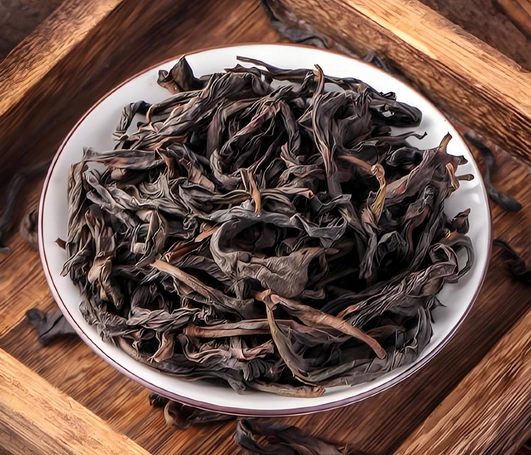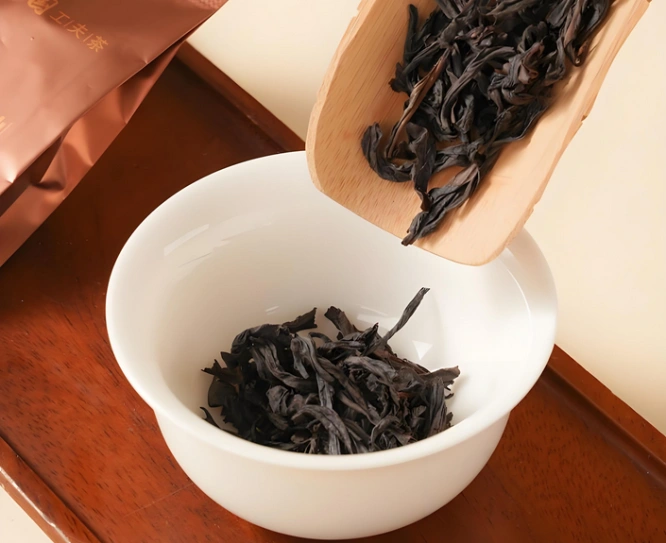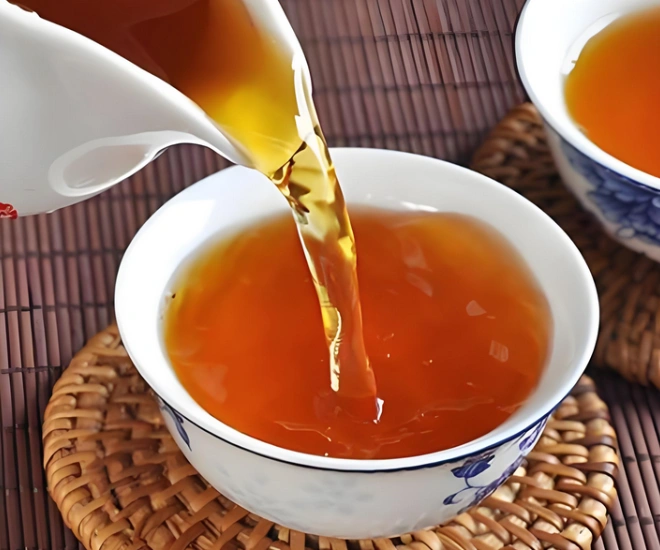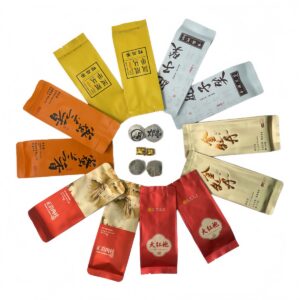Oolong tea side effects can catch even the most seasoned tea lover by surprise. You might sip on a smooth, floral infusion expecting health perks—and instead notice a fluttering heart, a restless night, or an upset stomach. While oolong tea is celebrated for its antioxidants and metabolism‑boosting polyphenols, it also carries potential downsides if brewed too strong, consumed in excess, or timed poorly. In this comprehensive guide, we’ll explore oolong tea side effects from caffeine sensitivity to digestive issues, explain how oolong tea caffeine content varies by style, and share tips on enjoying your evening cup—without disrupting oolong tea for evening digestion. Let’s unlock the truth behind the leaves.
1. Understanding Oolong Tea Caffeine Content
Not all oolongs are created equal. Caffeine levels depend on oxidation, leaf grade, and brewing:
- Lightly oxidized oolongs (e.g., Tieguanyin) contain about 30–40 mg per 8 oz cup.
- Medium to heavily oxidized oolongs (e.g., Wuyi rock teas) can reach 50–60 mg per cup.
- Brewing variables like water temperature and steep time can raise caffeine by up to 20%【1】.
“Tea brewed at 95 °C for 5 minutes extracted 18% more caffeine than 3 minutes steep.”
Read the study →【1】
Knowing your oolong tea caffeine content helps prevent jitters, sleep disruptions, and anxiety.

2. Common Side Effects of Oolong Tea
While moderate consumption is often harmless, higher doses can lead to:
- Insomnia & Restlessness: Nighttime caffeine can delay sleep onset—especially if you enjoy oolong tea after meals or before bed.
- Tachycardia: Sensitive individuals may experience rapid heartbeat or palpitations after strong brews.
- Digestive Upset: Tannins in oolong can irritate the stomach lining, causing nausea or acid reflux.
- Headaches: Caffeine withdrawal between cups can trigger tension headaches in habitual drinkers.
- Mineral Absorption: Tea polyphenols may bind dietary iron, slightly reducing its uptake when consumed with meals.
Keeping your intake to 2–3 cups per day and avoiding late‑day consumption mitigates most of these oolong tea side effects.
3. Oolong Tea After Meals: Digestive Considerations
Enjoying oolong tea after meals can aid digestion—its warmth stimulates gastric enzymes—but timing is crucial:
- Optimal: 20–30 minutes post‑meal.
- Too Soon: Drinking immediately after eating can dilute stomach acid, slowing digestion and causing bloating.
- Best Practice: Sip a gentle brew (light oxidation) to balance acidity, then wait at least half an hour before indulging in dessert.
Mindful timing turns a potential digestive pitfall into a soothing oolong tea after meals ritual.
4. Oolong Tea for Evening Digestion: Timing Matters
If you rely on oolong tea for evening digestion, beware of its caffeine:
- Ideal Choice: Opt for a low‑caffeine Varietal—such as lightly oxidized Tieguanyin—and cold‑brew it to reduce caffeine by up to 30%.
- Steep Time: Shorter steeps (1–2 minutes) extract fewer stimulants while preserving gentle enzymes that assist digestion.
- Cutoff: Finish your last cup at least 4–6 hours before bedtime to avoid disrupting sleep.
Properly brewed, oolong tea for evening digestion can soothe your gut without keeping you awake.

5. Rare but Serious Reactions
Though uncommon, some individuals may face:
- Allergic Responses: Skin rashes or hives triggered by tea proteins.
- Drug Interactions: Excess caffeine can interfere with certain medications (e.g., some antidepressants or antibiotics) by altering absorption rates.
- Excessive Diuresis: Over‑drinking may cause dehydration, leading to electrolyte imbalances.
If you experience any alarming symptoms after tea, consult your healthcare provider promptly.
6. Who Should Caution or Avoid Oolong Tea?
Certain groups should limit or skip oolong:
- Pregnant or Nursing Women: High caffeine may affect fetal development or pass through breastmilk.
- Individuals with Anxiety Disorders: Caffeine can exacerbate anxiety and panic attacks.
- People with Acid Reflux or Ulcers: Tannins may aggravate stomach lining issues.
- Children & Adolescents: Sensitivity to stimulants is higher in younger people.
If in doubt, test your tolerance with a weak brew and observe any oolong tea side effects before committing to more.
7. Mitigating Side Effects: Best Practices
You needn’t swear off oolong to avoid the pitfalls. Adopt these strategies:
- Use Cooler Water (90–95 °C): Extracts flavor with 20% less caffeine and tannin.
- Shorter Steeps (2 min): Limits stimulant extraction while retaining aroma.
- Cold Brew Method: Soak leaves in cold water 8–12 hrs to reduce caffeine by up to 50%.
- Pair with Food: Enjoy light snacks—nuts or fruit—to buffer tannin effects.
- Hydrate Well: Alternate tea sips with water to counter diuretic effects.
These tips ensure you reap oolong’s rewards—like antioxidant benefits—without the drawbacks.

8. Health Benefits vs. Risks: Finding Balance
Oolong tea is rich in:
- Polyphenols: EGCG and theaflavins that combat oxidative stress.
- Metabolic Aid: Studies link oolong drinking to modest weight management support and improved lipid profiles.
Balancing 2–3 moderate cups daily—ideally before noon—lets you enjoy benefits while minimizing oolong tea side effects.
9. Scientific Insights: Studies on Tea Safety
Research underscores both perks and precautions:
- A review in Critical Reviews in Food Science and Nutrition found no serious adverse events at moderate consumption (2–5 cups/day), but cautioned about high doses (> 10 cups) leading to caffeine toxicity【2】.
- Another study showed tea polyphenols improved gut microbiota diversity, supporting oolong tea for evening digestion, but noted tannin modulation of nutrient absorption as a factor to monitor.
“Moderate tea consumption is safe for most, but excessive intake can lead to caffeine overdose symptoms.”
Learn more →【2】
10. Conclusion & Reader Takeaways
Oolong tea side effects need not overshadow its many benefits. By understanding oolong tea caffeine content, timing your oolong tea after meals, and employing brewing best practices—such as cooler water, shorter steeps, or cold brews—you can enjoy vibrant alertness, digestive support, and antioxidant protection without the jitters, heart palpitations, or sleep disruption. Listen to your body, start with gentle infusions, and adjust based on how you feel. Share your own experiences with oolong tea side effects or tips for mitigating them, and join our community in savoring this complex, ancient brew—responsibly and joyfully.



